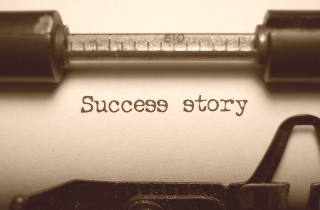One of the biggest differences between my parents’ generation and mine was that they believed in planning for the worst. They lived through the the Great Depression and World War II. They were cheerful people, but they were also aware that things could go very wrong suddenly and easily. They believed in being prepared for the earthquake, the housefire, the unexpected illness, the financial downturn. Having a nest-egg, an exit plan, and a safety-net was essential to their sense of security. Knowing they were prepared, they could relax and enjoy life.
I came of age in the free-wheeling, optimistic 60’s—the “dawning of the Age of Aquarius”—when the economy was booming and social change appeared to be right on the horizon. My generation, and the ones that followed, take seriously the idea that positive thinking is the key to success. That means believing—even assuming—things will go well and visualizing the best possible outcome at all times. Planning for negative outcomes has come to be seen as wrong—as something that will cause you to fail.
Over the years, I’ve come to believe my parents had the right idea after all. Thinking about what you’ll do if things go wrong isn’t a bad thing. It doesn’t mean you lack confidence. It doesn’t mean you are being negative. It means you are realistic. It can you get through the worst times.
Applying this to writing, I’m willing to go out on a limb:
Being emotionally prepared for disappointment is the # 1 thing that helps writers achieve success.
This is because being unprepared is the # 1 thing that causes would-be writers to fall by the way-side.
What happens when you’re not prepared.
Many times, in my coaching practice I’ve seen new writers confident that their first novel or memoir is going to get a hefty advance from a major publisher. Some of them even worry about how they’ll deal with the fame they are going to achieve with their first published work. They even consider any mention of the possibility that they might not achieve overnight success as a put-down.
When these writers get their first rejection, they are stunned and confused. By the third, they’re reeling, and by the time they’ve gotten six or seven, they’re in shock. Without the emotional preparation to deal with the disappointment, they’re often unable to cope with it. They stop sending their work out, and their writing careers end before they’ve begun.
Writers who are realistic about the publishing world know that success is often capricious and hard-won. They believe in their work and hope for the best, but they know they may have a tough road ahead.
When these writers start getting rejections, they deal with them. Sure, they hurt. They grouse. They cry. But they do so with the awareness that the vast majority of writers have been through the exact same thing. They know rejection is par for the course. They get through it.
How Can You Prepare for the Bad Times?
1. Awareness. Take a look at the statistics. Going in with knowledge should be part of every writer’s approach, just as every entrepreneur should know the details of the markets they are entering.
2. Connection with other writers. Finding community with writers is one of the best ways to gain strength. Seeing the struggles of others and sharing your own is a building block to the kind of endurance you need as a writer. In community, you can learn how others deal with their setbacks, and adapt those techniques to your own life. Watching as other writers achieve their dreams can demystify success and make you realize that, while it may be difficult, it isn’t impossible.
3. Commitment to the writing itself. With all the emotion that rejection and acceptance bring up, it’s easy to lose perspective. Many of us forget that our commitment isn’t to publishing—it’s to writing. Focus on your work. Dedicate yourself to it.
4. A long-term perspective. Success comes to different writers in different ways. It might be just around the corner or ten years off. Don’t expect it next week or next month. Be open to it when it comes and realize it may take it’s sweet time.
The writing life is challenging. A miniscule number of writers achieve easy success. The rest of us live on a diet of ten-parts disappointment to one-part triumph.
If you do it right, that one part can bring as much joy, satisfaction, and nourishment as you need, and the other ten can be manageable. To make it so, we need to prepare for the disappointment, the same way our parents and grandparents prepared for tornadoes, droughts, and lean times: with grit, forethought, and determination.
Photo Credit: Success story

Excellent article, no matter where you are in your career, these are words you need to embrace. Because writing is roller coaster.
Thanks, Marie! I agree. It applies to everyone!